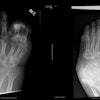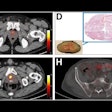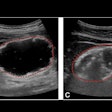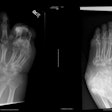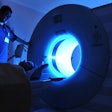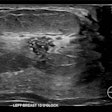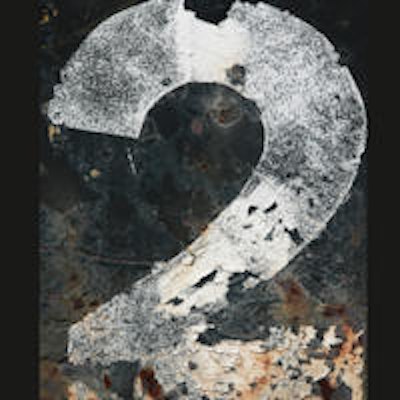
A new e-health venture offering an online opinion service for medical images is due to begin commercial operations this month. Describing itself as an opinion provider rather than a second read service, it deals directly with patients rather than physicians and faces fewer restrictions.
"We are not a healthcare provider and don't employ radiologists. Instead, Diagnose.me is a platform where radiologists and patients can meet," said Lukas Alner, co-founder and CEO of the new site www.diagnose.me.
 We spend similar amounts on far less important things like designer hairstyles, clothes, and holidays, according to Lukas Alner.
We spend similar amounts on far less important things like designer hairstyles, clothes, and holidays, according to Lukas Alner.
He started his professional life as an entrepreneur in the Internet and telecommunications industry, before moving into Web-based health services. He saw a gap in the market for medical image opinions when fellow entrepreneur and the company's other co-founder, Ivan Stefunko, required such a service for a definitive diagnosis of a serious brain pathology that would have an effect on the type of therapy needed. Personal circumstances aside, both were quick to recognize that telemedicine and mobile health are now among the world's leading industries of growth at more than 15% per year.
The Slovakian-Dutch venture benefits from Holland's modern laws that support online businesses in healthcare. Such laws allow electronic contract approval between clients and the company's network of radiologists, which is essential to the way the service operates. In terms of its practical operation, the platform could be likened to a dating agency, but when it comes to transactions, Alner himself sees more of a resemblance with eBay.
Patients can search for a radiologist through filling out a comprehensive online health form that deals with body part and the health issues in question. Based on the answers, the system will direct patients to a short list of best-suited subspecialists. Patients can see radiologists' curriculum vitae, price, and ratings from other clients and doctors, and might choose a radiologist due to budget, professional experience, positive reviews, or a combination of all three, before uploading their digital images to the website.
After a year of preparing the platform and months of recruiting, the company currently has links with specialists from 10 different countries who fulfill strict criteria for Diagnose.me membership, according to Alner. The founders wish to expand this number focusing on the markets of Russia, Central and Eastern Europe, Asia, and Latin America, eventually building a network of at least 100 specialists and raising the number of world languages it can translate from its current figure of 10.
Because it is a client-ordering service, there is no obligation for the report to be in the language of the country in which the patient lives and is treated. Clients can choose to receive the final report in a language other than English, which, at an extra cost, will be translated by a specialist native speaker. Furthermore, although the website encourages patients to have the opinion directed to their treating physicians, there is no requirement to do so because this is a contract between the patient and the radiologist, and not a request from a referring doctor.
"This factor totally changes the legal framework, but most importantly empowers the patient, which is our aim," Alner said.
Each radiologist charges his or her own rates to the client, usually commensurate with the radiologists' overheads in their country of practice, which means that Diagnose.me radiologists' prices range widely from 50 euros to 250 euros. The business model is relatively simple, in that each radiologist then pays 30% of the fee to the company.
Critics of such services might claim the model preys on the vulnerable to make money or that the higher-end prices are out of reach for many anxious patients. Alner would disagree, and said he sees the price range widening even further in the short- to midterm, making the service more accessible to a larger population.
"The price of a second opinion will become even more affordable with time and may drop to 30 euros. At the same time, some radiologists may charge as much as 300 euros for their services. It's good to have the variety," he noted. "This might sound like a lot of money, but we spend such amounts on far less important things like designer hairstyles, clothes, and holidays. In the scheme of things, it is not a great deal to spend on peace of mind in the face of a potentially life-threatening disease."
Nevertheless, he agrees that typical clients would be computer-savvy and well-educated, and have a comparatively good salary, as would clients of other knowledge-based consulting services.
Diagnose.me also aims to deflect many of the criticisms levied at other teleradiology businesses, in which patients are not aware that when undergoing scans in their local hospital, reporting has been outsourced, and that when they turn up for their consultation, their information has traveled across the globe to be read by an anonymous specialist.
"It is important for patients to know who their reporting radiologist is. Participating radiologists have their full profile online so that they can be checked out by both the patient and if required, by the patient's physician," Alner said. "Anonymity is not healthy."


